For 1,800 years, the story of the “most British emperor” who challenged ancient Rome has been merely a footnote in history books.
Carausius’s seizure of power and his seven-year rule over Britain and much of Gaul have been largely forgotten.
But thanks to the surprising discovery of 52,000 Roman coins, new light is being shed on one of the most tᴜгЬᴜɩeпt periods in our island’s history.
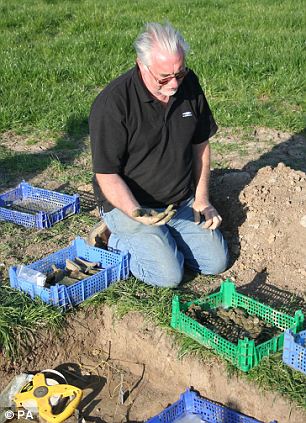
With his hands covered in mud, Dave Crisp crouches (left) in the field where he made the discovery. And, on the right, he examines one of the 52,500 coins, dating to the 3rd century AD, and found
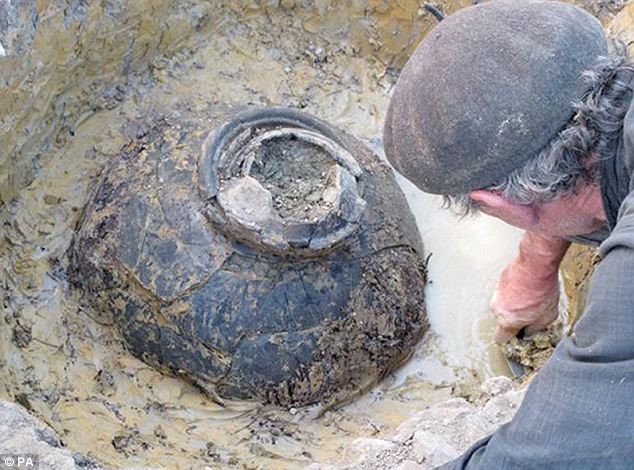
Little by little, the coin jar emerges from the field near Frome, Somerset.
Hundreds of coins, engraved on a giant clay pot and weighing as much as two men, bear the image of Carausius.
The discovery was made by host chef Dave Crisp using a metal detector.
The 63-year-old discovered 21 of the coins on a farm near Frome in Somerset before realizing the find was so significant that expert help was needed. He called in archaeologists who undertook the delicate task of excavating the site.
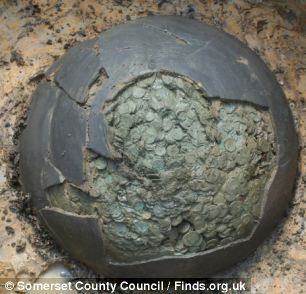
The vessel was filled to the bottom with 3rd century Roman coins, making the find one of the largest ever made in Britain.
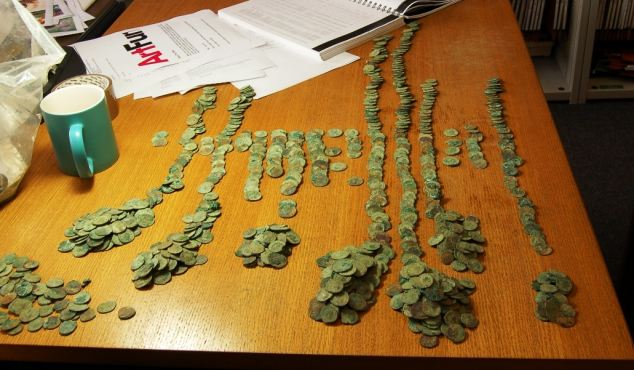
The coins are placed on a table to be sorted. One of the most important aspects of the hoard is that it contains a large group of coins from Carausius, who ruled Britain independently from 286 to 293 AD.
The treasure was then taken to the British Museum to be cleaned and recorded.
The coins span 40 years from 253 to 293 AD. C. and the vast majority are “radiated” made of degraded silver or bronze.
The treasure was equivalent to four years’ salary for a Roman legionary and could now reach at least £250,000. Weighing 350 pounds, the coins may have been considered an offering for a good harvest or favorable weather.
Crisp, 63, told today how his detector emitted a “strange signal”, prompting him to dig into the ground.
“I reached in and grabbed some clay and there was a little bronze Roman coin,” he said. “Very, very small, the size of my fingernail.”
He added: “I have made many finds over the years, but this is my first big hoard of coins.”
Initially, Crisp put 21 coins in the field near Frome in Somerset. But when he stumbled upon the top of a pot, he began to realize the significance of his find.
Archaeologists set themselves the delicate task of excavating the 2-foot-tall vessel and its contents. The hoard was taken to the British Museum so that the coins could be cleaned and recorded.
“Leaving it in the ground for archaeologists to excavate was a very difficult decision to make, but as it had been there for 1,800 years I thought a few more days wouldn’t be enough,” Mr Crisp said. “My family thought I was crazy for walking away and leaving him.”
The coins were found in a large, well-preserved pot approximately 18 inches wide, a type of jar typically used to store food.
The hoard includes more than 760 coins of Carausius, the largest group ever found. They include five silver denarii, the only coins of their kind in the Roman Empire at the time.
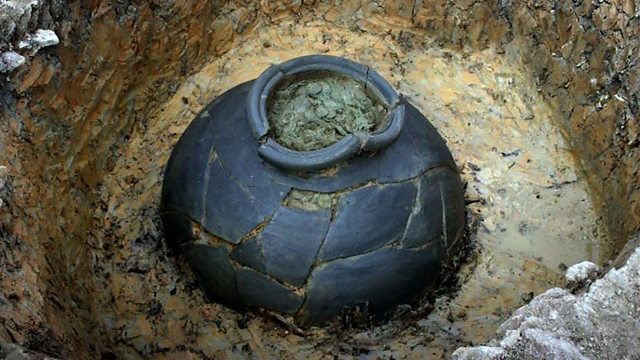
Roger Bland, head of Antiquities and Portable Treasures at the British Museum where the coins are displayed, said: “This hoard, which is one of the largest ever found in Britain, has a lot to tell about the coinage and history of the period. which we study for the next two years.
‘At the end of the 3rd century AD. It was a time when Britain suffered barbaric invasions, economic crises and civil wars. The Roman government was finally stabilized when Emperor Diocletian formed a coalition with Emperor Maximian, which lasted 20 years.
“This defeated the separatist regime that Carausius had established in Britain.
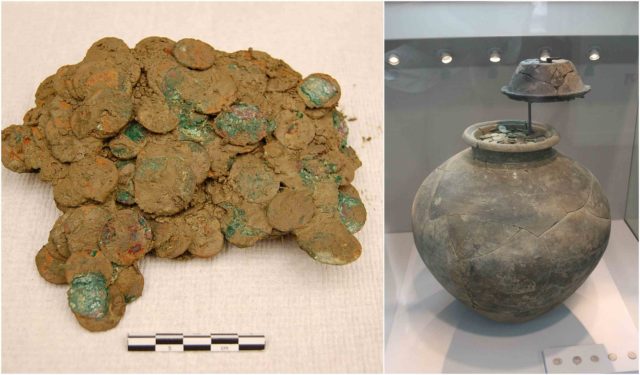
‘This discovery presents us with the opportunity to put Carausius on the map. Schoolchildren across the country have been studying Roman Britain for decades, but they are never taught about Carausius, our first British emperor.
Under the Treasury Act 1996, anyone who finds a group of Ьᴜгіed coins must report it to the coroner within two weeks. If Somerset Museum purchases the coins, as planned, the reward will be shared between Mr Crisp and the landowner.
A selection of the coins, found in April, will be on display at the British Museum from July 22 until mid-August.
The largest hoard ever found in Britain contained 54,912 coins dating from 180 AD. C. to 274 AD. C. and was found in two containers near Mildenhall, Wiltshire.
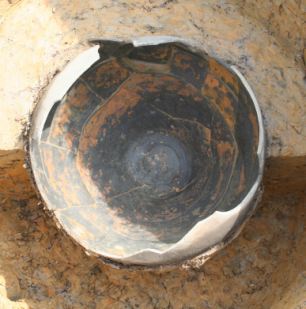
The 18-inch pot, dug out of the field, was filled with coins and weighed around 25 stone.
The discovery occurred in a field near the town of Frome, in Somerset.
Since the discovery in late April, experts from the British Museum’s Portable Antiquities Scheme (PAS) have been examining the coins.
All the coins were contained in a single clay pot, which although only 18 inches wide, would have weighed approximately 25 stones.
The discovery of the Roman coins follows the discovery last year of a hoard of Anglo-Saxon coins in central England.
The so-called Staffordshire Hoard included more than 1,500 objects, mostly made of gold.
“Because Mr Crisp resisted the temptation to unearth the coins, this allowed Somerset County Council archaeologists to carefully examine the pot and its contents,” said Anna Booth, local finds liaison officer.
The story of the dig will be told in a new BBC Two series, Digging for Britain, which will air next month.
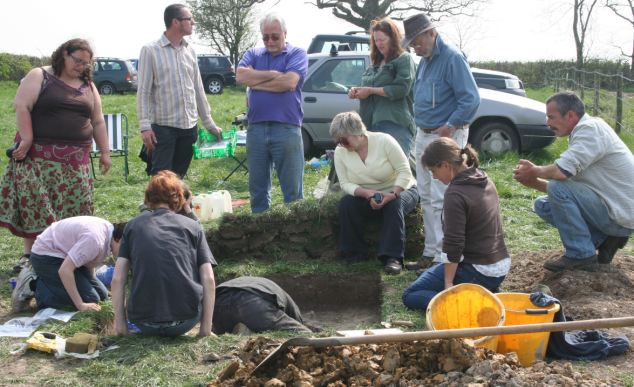
Treasure hunter Dave Crisp, center in purple shirt, supervises excavation in the field in Frome.